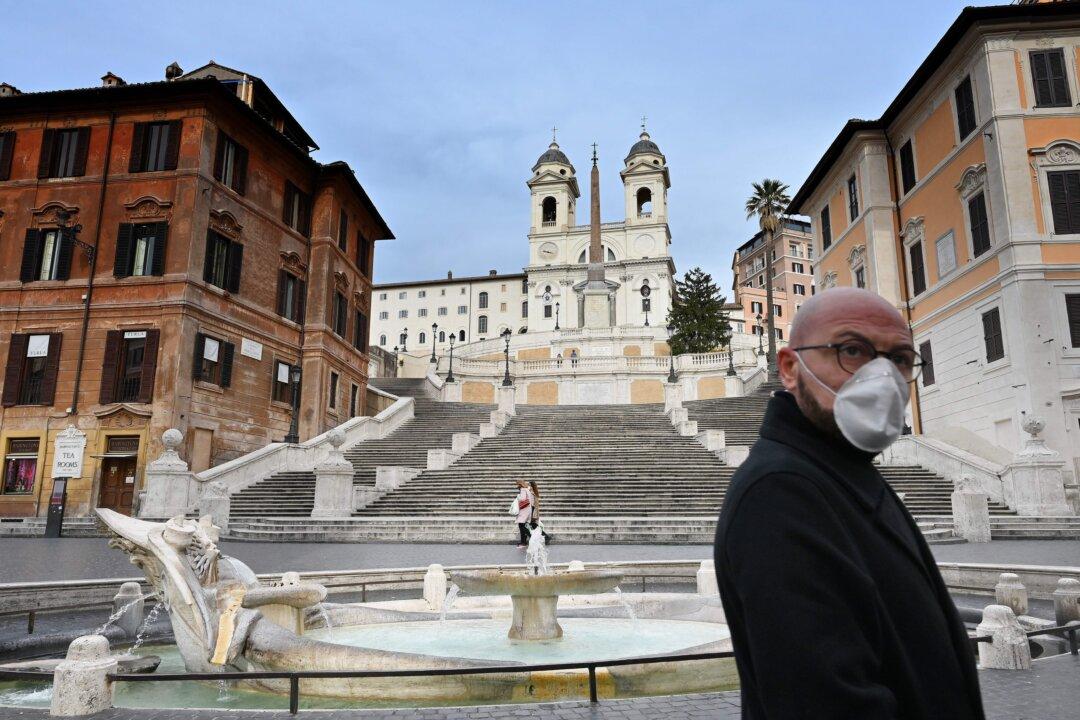The worsening coronavirus outbreak in Italy has led its government to re-evaluate its relationship with Beijing and align more with Washington, an expert said.
Almost a year after Italy became the first G-7 country to sign on to the Chinese regime’s flagship foreign policy project, the Belt and Road Initiative (BRI, also known as One Belt, One Road)—drawing criticism from its Western allies—the country’s initial handling of the outbreak indicated a shift in relations.





